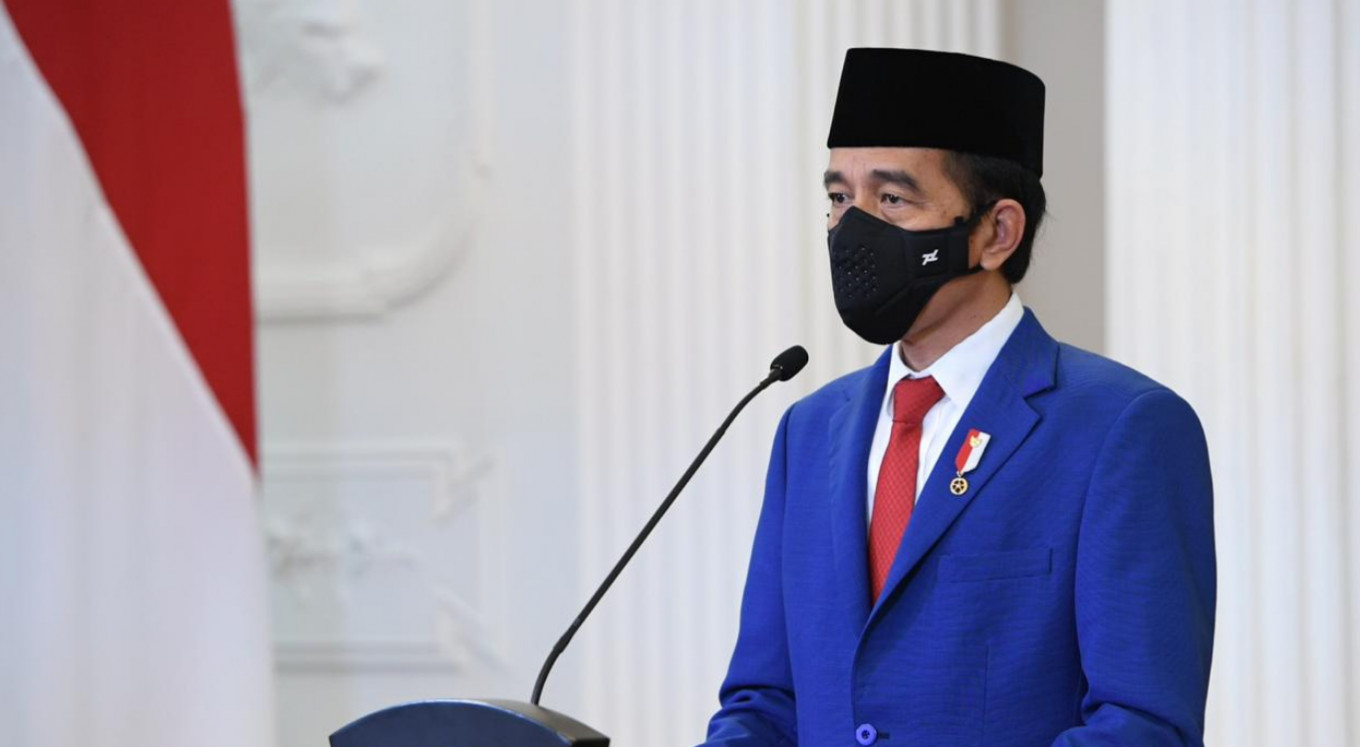Popular Reads
Top Results
Can't find what you're looking for?
View all search resultsPopular Reads
Top Results
Can't find what you're looking for?
View all search resultsJokowi aims to awaken ‘sleeping giant’ by merging state-owned sharia banks
President Jokowi said he aimed to realize the full potential of Indoensia's sharia financial industry by merging state-owned sharia banks, likening the industry to a “sleeping giant” that could boost economic activity.
Change text size
Gift Premium Articles
to Anyone
P
resident Joko “Jokowi” Widodo said he aimed to realize the full potential of the country’s sharia financial industry by merging state-owned sharia banks, likening the industry to a “sleeping giant” that could boost the sluggish economy.
The sharia economy and sharia finance had immense potential to create jobs, the President said, adding that the country had to seize the opportunity to become the global hub of the sharia economy.
“The sharia financial industry is a sleeping giant. As the country with the largest Muslim population in the world, Indonesia must capture this opportunity,” he said during the Indonesia Sharia Economic Festival on Wednesday.
The government’s efforts to merge the state-owned sharia banks could boost the industry, he added. The government had started the process of merging the three banks’ sharia subsidiaries to create the country’s biggest sharia bank and one of the top-10 largest banks in the country early next year with total assets of Rp 214 trillion (US$14.59 billion) as of June this year.
The three state-owned banks, Bank Mandiri, Bank Rakyat Indonesia (BRI) and Bank Negara Indonesia (BNI), along with their sharia subsidiaries, Bank Syariah Mandiri (BSM), BNI Syariah and publicly listed BRI Syariah, signed a conditional merger agreement (CMA) earlier this month.
“The sharia finance industry has immense potential to create jobs and new business opportunities,” he said. “The government has a great concern to awaken this giant, including through the development of the biggest sharia bank in Indonesia.”
Indonesia’s sharia finance industry assets reached 1.63 quadrillion (US$111.1 billion) as of July this year, according to the Financial Services Authority (OJK). The figure marks a 20.6 percent increase from the same period last year and a market share of 9.68 percent of the country’s financial industry.
The world’s 1.8 billion Muslim consumers spent an estimated US$2.2 trillion in 2018 across different sectors of the halal economy, which indicated 5.2 percent year-on-year growth. The overall halal economy is projected to be worth $3.2 trillion in 2024, based on the 2019 “State of the Global Islamic Economy” report by research and advisory firm DinarStandard.
There are three pillars to develop the sharia economy, namely the development of halal supply chains in agriculture, fashion and other industries as well as the development of sharia financial industry and social finance, which include zakat (alms) and infaq (voluntary charity), according to Bank Indonesia (BI) Governor Perry Warjiyo.
“The sharia economy and sharia finance industry are being directed to drive national economic growth,” he said during the same event. “The central bank is committed to developing the pillars of the sharia economy and sharia finance.”










